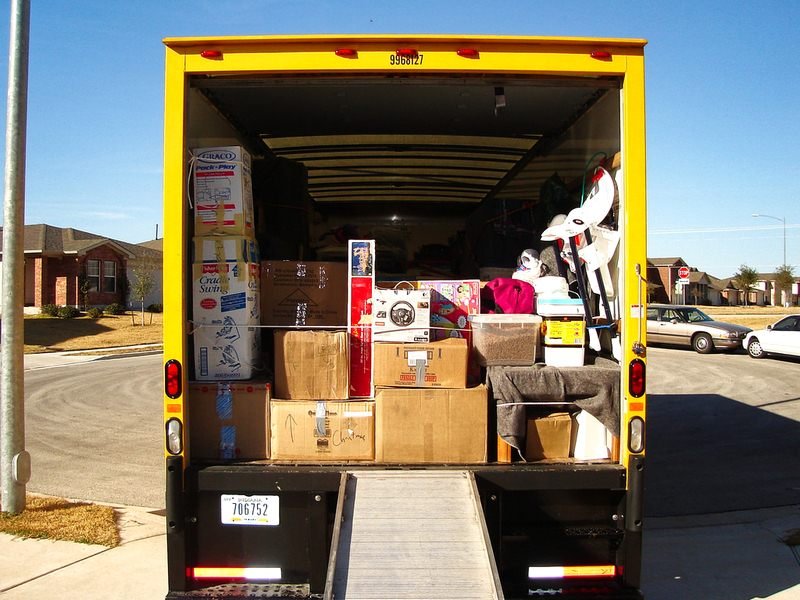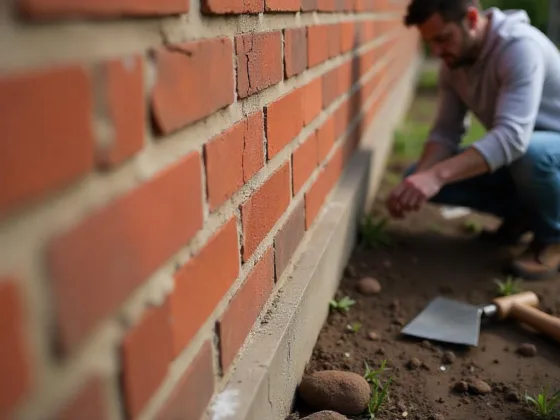Table of Contents Show
Moving to new cities, counties, and even countries is no longer a hustle for many people. This is because people have different tastes in what they want in life. Everyone wants something different.
A good example is that in America, over sixteen million people moved from one place to another between the years 2010 and 2014, this is according to truely.com. Some people move because their families have grown bigger and thus, they need to get a new place that can accommodate everyone.
However, to some, the relocation might be due to the occupation. If you get a better-paying job that meets all your needs, you will relocate to the new place. If you move to a new place, definitely some things like the laws and regulations might change.
When the moving time comes, you will need to asses a lot of things before you come to a decision. Some of these things include:
Choosing the Right Moving Company
When preparing for a move, selecting a reliable moving company is one of the most important things to consider, especially for families with many belongings. Hiring a local mover can make the process much easier, as they are usually more familiar with the area and can navigate local rules, traffic patterns, and logistical challenges more effectively. This familiarity can result in a smoother and more efficient moving experience.
Researching Potential Moving Companies
To evaluate the reputation of potential moving companies, it is crucial to do thorough research. Online reviews and ratings from previous clients can provide valuable insights into the level of service and reliability a company offers. Additionally, organizations such as the Better Business Bureau (BBB) can provide information on any complaints filed against a moving company. It is advisable to create a shortlist of companies with positive reviews and directly contact them to discuss your specific needs and assess their responsiveness and professionalism.
Considering Services Offered
In addition to reputation, the services offered by a moving company should also influence your decision. Many local movers provide packages that include packing, transportation, and unpacking services, which can greatly relieve the burden on families during a move. Hiring professionals for these tasks ensures that items are handled with care, reducing the risk of damage. Furthermore, well-established moving companies often have insurance, which adds an extra layer of protection for your belongings in case of unexpected incidents.
Ensuring Safety Measures
Ensuring your family’s safety during the moving process is crucial; therefore, it is essential to verify that the company employs qualified personnel and uses appropriate equipment. Checking for relevant licenses and certifications can also provide peace of mind.
Investing time in choosing the right moving company can lead to a smooth transition to your new home, allowing your family to settle in easily.

Inventorying Your Belongings
When preparing for a move, one of the most significant steps you can take is to conduct a thorough inventory of your belongings. This process not only helps you keep track of your items but also allows you to prioritize what is essential to take with you.
Creating an inventory list is crucial; it provides a clear view of what you own and serves as a useful reference during the packing and unpacking stages. Furthermore, having a detailed inventory can be beneficial for insurance purposes, ensuring that all possessions are accounted for in case of loss or damage during transportation.
Why You Should Inventory Your Belongings
Here are some reasons why you should inventory your belongings before moving:
- Stay organized: An inventory list helps you stay organized during the packing and unpacking process.
- Insurance purposes: Having a detailed inventory can be beneficial for insurance purposes, ensuring that all possessions are accounted for in case of loss or damage during transportation.
- Prioritize essentials: The process allows you to prioritize what is essential to take with you, ensuring that you don’t leave behind anything important.
- Declutter: As you examine your items, it becomes essential to discern which possessions are worth keeping and which can be sold, donated, or discarded.
How to Conduct an Inventory
Here’s how you can conduct an inventory of your belongings:
- Go room by room: Start with one room and go through each item systematically.
- Make a list: Write down each item on a separate line or use a spreadsheet for better organization.
- Include details: For valuable items, include details such as brand, model number, and purchase date.
- Take photos: Consider taking photos of high-value items as additional documentation.
- Store it safely: Keep a digital copy of your inventory in a cloud storage service or email it to yourself for easy access.
Decluttering Before Your Move
Decluttering before a move can have a substantial impact on both the financial and mental aspects of relocating. Here are some benefits of decluttering:
- Reduced moving costs: Reducing the number of items to be moved can lead to decreased moving costs, particularly when using professional services that charge based on the volume of goods.
- Less stress: The act of decluttering often alleviates the stress associated with moving, as a lighter load allows for a quicker and more streamlined process.
By taking the time to inventory and assess your possessions, you set a positive tone for your move, paving the way for a more organized and manageable transition to your new home.
Assessing Living Costs in the New Area
Understanding the living costs in a new area is a crucial step when contemplating relocation. Different cities or countries can exhibit significant variations in expenses, impacting one’s overall budget and lifestyle. Therefore, a detailed assessment of these financial factors is essential to ensure a smooth transition to your new environment.
1. Evaluate Housing Prices
The first aspect to evaluate is housing prices. Start by researching the average rental or purchase prices for different types of accommodation. Online property listing platforms, local real estate agencies, and community bulletin boards often provide valuable insights into current market trends. Additionally, examining housing trends over time, including seasonal fluctuations, can help you better understand when to make your move or negotiate a lease. Knowledge of your chosen neighborhood can also reveal variations in pricing, helping in the selection of a suitable area that aligns with your financial capabilities.
2. Consider Utility Expenses
Next, consider the utility expenses that come with living in a new location. These can include electricity, water, heating, internet, and other essential services. Some local municipalities offer resources detailing average utility costs, but discussions with residents or local online forums can reveal personal experiences that are often more telling. Understanding these recurring expenses is critical in forming an accurate budget.
3. Assess the General Cost of Living
Finally, it is vital to assess the general cost of living, which encompasses groceries, transportation, healthcare, and leisure activities. Websites that aggregate cost of living indices can facilitate comparisons between your current and prospective locations. Being well-informed about day-to-day expenses will further empower you to establish a realistic budget, ultimately making your relocation process more manageable.
A comprehensive understanding of living costs in a newly considered area not only aids in strategic financial planning but also ensures that your move aligns with your economic situation and lifestyle preferences.
When thinking about moving to a new place, one of the most important things to consider is the availability and quality of social amenities. These essential services, which include schools, hospitals, grocery stores, and recreational facilities, significantly influence the overall quality of life for residents.
Importance of Educational Institutions
Access to well-regarded educational institutions is particularly vital for families with children, as it directly impacts their academic and social development. An area with a variety of schools can provide families with choices that suit their specific needs and preferences.
Role of Healthcare Facilities
Healthcare facilities also play a crucial role in ensuring the well-being of individuals and families. It is important to assess the proximity and quality of hospitals and clinics within the new location. Checking online reviews, contacting local health boards, and observing the facilities firsthand can provide valuable insights into the healthcare services available. A community with accessible healthcare ensures that residents can receive timely medical attention, which is particularly important during emergencies.
Convenience of Grocery Stores
In addition to educational and healthcare services, grocery stores and supermarkets contribute to everyday convenience. A community with a variety of stores allows for diverse shopping options and contributes to the overall economic health of the area. Evaluating the accessibility and quality of grocery stores can prevent unnecessary travel time and promote a smoother lifestyle.
Benefits of Recreational Facilities
Recreational facilities, including parks, sports centers, and community centers, are also integral to fostering a sense of belonging and well-being among residents. These amenities encourage social interaction, physical activity, and community involvement. For families, having access to safe and engaging recreational spaces can greatly enhance their living experience.
Thus, thoroughly researching these social amenities is crucial for making an informed decision about relocating to a new place.
Evaluating Transportation Links
When choosing a new home, the significance of transportation links cannot be overstated. Daily commuting significantly affects personal convenience, quality of life, and even job opportunities. Hence, evaluating the proximity to efficient public transport options is crucial. Public transportation systems, such as buses, trains, and subways, provide essential links for residents, facilitating easy access to various destinations, including workplaces, schools, and leisure activities.
The Importance of Public Transport
Public transport plays a vital role in ensuring residents can move around easily. Here’s why it’s important:
- Convenient Commutes: Efficient public transport options can make daily commutes more convenient and less stressful.
- Access to Opportunities: Reliable transportation links can open up job opportunities that may be located further away from home.
- Sustainable Living: Using public transport reduces reliance on cars, contributing to a more sustainable lifestyle.
Assessing Road Connectivity
While public transport is crucial, road connectivity is equally important. Here’s what to consider:
- Well-Maintained Roads: Look for areas with well-maintained roads that can accommodate smooth traffic flow.
- Multiple Routes: Having multiple routes available can provide flexibility in travel plans and reduce travel time.
- Easy Access to Highways: Proximity to major highways can be beneficial for those who prefer driving long distances.
Understanding Overall Accessibility
In addition to public transport and road connectivity, it’s essential to understand the overall accessibility of an area. Here are some factors to consider:
- Peak Traffic Hours: Be aware of peak traffic hours in the area as they can significantly impact commute times.
- Proximity to Airports: If frequent air travel is a part of your lifestyle, consider the proximity of the area to airports.
- Existence of Ride-Sharing Services: Check if ride-sharing services operate in the area as they can provide additional transportation options.
Considering Remote Locations
If you’re considering living in remote locations or communities with inadequate transport systems, it’s important to assess how this may affect your lifestyle. Here are some points to keep in mind:
- Accessibility Challenges: Understand the challenges you may face in accessing essential services or recreational activities due to limited transportation options.
- Impact on Social Engagement: Consider how transportation difficulties may impact your ability to engage socially or participate in community events.
Understanding the transportation landscape will ultimately aid in making informed decisions about where to establish a new home, ensuring that residents lead a fulfilling and convenient lifestyle.
Understanding Local Laws and Regulations
Before moving to a new place, it’s important to understand the local laws and regulations that govern daily life there. Each city, county, or country has its own set of rules that greatly affect housing, safety, and how people interact in the community. For new residents, understanding these legal frameworks is crucial for successfully navigating their new environment.
Zoning Laws
One important aspect to consider is zoning laws, which can dictate how properties can be used within specific districts. For instance, certain areas may be designated for residential use only, while others allow for commercial development.
Knowing the zoning regulations can help ensure that your intended activities—whether they involve home-based businesses or renovations—are permissible and compatible with the neighborhood’s character. Furthermore, you may want to verify whether your planned activities align with the local zoning ordinances to avoid potential disputes or fines.
Property Taxes
Property taxes are another critical factor to investigate. Each locality has its taxation policies, which can vary significantly in terms of rates and exemptions. Understanding these tax obligations will help you prepare financially for your move and avoid surprises when you receive your first tax bill. Additionally, some municipalities may offer certain programs or incentives for new residents or property improvements, potentially easing the financial burden.
Community Rules
Community rules, such as homeowner association (HOA) regulations or local ordinances concerning noise and property maintenance, are also important to review. These guidelines can greatly affect your day-to-day living and can help cultivate a sense of community among residents. Being informed about these regulations can help foster positive relationships with neighbors and local authorities while avoiding conflicts that may arise from unawareness.
Coping with Emotional Challenges of Moving
Moving to a new place often brings about a mix of emotions. The psychological effects of moving can show up as feelings of sadness, worry, and even excitement. Leaving behind familiar surroundings, friends, and daily routines can make you feel like you’re losing something. The stress of packing and planning can make these feelings even stronger.
Understanding Your Emotions
It’s important to understand these emotions so you can handle the challenges that come with moving better. Here are some common emotions people experience when moving:
- Sadness: You might feel sad about leaving your old home, friends, and familiar places behind.
- Anxiety: Moving to a new place can be scary because you don’t know what to expect. You might worry about fitting in, making new friends, or adjusting to a different culture.
- Excitement: On the flip side, moving can also be exciting! It opens up new opportunities and experiences that you can look forward to.
Finding Balance
Finding a balance between these conflicting emotions is crucial. Here are some strategies that can help:
- Stay connected with loved ones: Make an effort to keep in touch with your friends and family during this transition period. They can provide support and remind you that you’re not alone in this experience.
- Get involved in the new community: Actively participate in local events, join clubs or organizations, and volunteer in your new neighborhood. This will help you meet new people and feel more connected to your surroundings.
- Establish a routine: Create a daily schedule that includes activities you enjoy doing. Having a routine can bring stability and normalcy into your life after the move.
- Personalize your space: Decorate your new home in a way that reflects your personality and interests. This will make it feel more like yours and reduce any feelings of displacement.
By implementing these strategies, you can navigate the emotional challenges of moving more effectively and embrace the new possibilities that relocation brings.
Planning Your Move Wisely
Moving to a new place often requires a lot of planning and foresight. A well-organized moving strategy can greatly reduce stress and problems that usually come with moving. To start creating a detailed moving timeline, try to start the process at least two months before your planned move date. This time frame gives you enough opportunity to handle all parts of the move systematically.
Establishing a Budget
First and foremost, establishing a budget is crucial. Outline all expected costs associated with your move. These can include hiring moving professionals, renting a moving truck, purchasing packing materials, and, if applicable, security deposits for your new home. Allocating funds for unexpected expenses can also be advantageous, as unforeseen issues may arise. A detailed budget not only helps in managing your finances but also provides realistic expectations regarding the financial commitment involved in the relocation.
Creating a Comprehensive Checklist
Alongside your budget, creating a comprehensive checklist is indispensable. A well-structured checklist should itemize every task that requires completion before, during, and after your move. It can include notifying utility companies, changing your address with the postal service, and organizing personal belongings for packing. Grouping tasks by priority can enhance efficiency and provide a sense of accomplishment as you check items off the list.
Establishing a Timeline
Furthermore, establishing a timeline with specific deadlines for each task can direct your efforts and ensure nothing is overlooked. For instance, scheduling a date for packing specific rooms or notifying landlords can maintain focus and accountability in your planning.
By combining these techniques—creating a budget, developing a checklist, and structuring a detailed timeline—you can substantially improve your transition to a new space, leading to a smoother and more organized moving experience.










